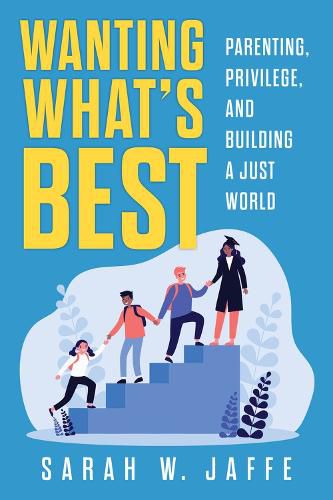Readings Newsletter
Become a Readings Member to make your shopping experience even easier.
Sign in or sign up for free!
You’re not far away from qualifying for FREE standard shipping within Australia
You’ve qualified for FREE standard shipping within Australia
The cart is loading…






When privileged parents say that they ‘want what’s best’ for their child, they don’t consciously add ‘and not for other children.’
Yet the practical effect of parents with privilege relentlessly pursuing their own child’s interests is that other children are left behind. Author Sarah W. Jaffe interviewed dozens of parents who are resisting the cultural pressures to seek the best for only their kids while navigating some of the major decisions that parents make-about childcare, schools, how they use their time and money, and the legacy they hope to leave their kids. These may not feel like political decisions, but each either contributes to a system where only a few can thrive or takes a small step toward dismantling it.
Our children are watching and learning from how we make choices. How we treat the people who care for them tells them how they should behave as a boss. Where we send them to school teaches them about their place in the world. How we spend our time and money sends them more powerful messages about how to spend theirs than any lecture about the importance of giving back or gratitude ever could.
What does it look like to fight for other people’s children as if the future of your own child depended on it? What choices would you make?
$9.00 standard shipping within Australia
FREE standard shipping within Australia for orders over $100.00
Express & International shipping calculated at checkout
Stock availability can be subject to change without notice. We recommend calling the shop or contacting our online team to check availability of low stock items. Please see our Shopping Online page for more details.
When privileged parents say that they ‘want what’s best’ for their child, they don’t consciously add ‘and not for other children.’
Yet the practical effect of parents with privilege relentlessly pursuing their own child’s interests is that other children are left behind. Author Sarah W. Jaffe interviewed dozens of parents who are resisting the cultural pressures to seek the best for only their kids while navigating some of the major decisions that parents make-about childcare, schools, how they use their time and money, and the legacy they hope to leave their kids. These may not feel like political decisions, but each either contributes to a system where only a few can thrive or takes a small step toward dismantling it.
Our children are watching and learning from how we make choices. How we treat the people who care for them tells them how they should behave as a boss. Where we send them to school teaches them about their place in the world. How we spend our time and money sends them more powerful messages about how to spend theirs than any lecture about the importance of giving back or gratitude ever could.
What does it look like to fight for other people’s children as if the future of your own child depended on it? What choices would you make?